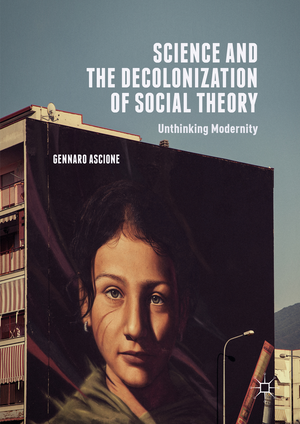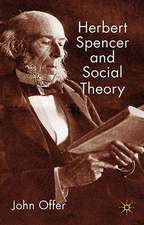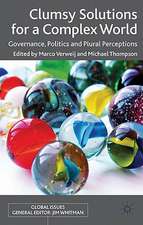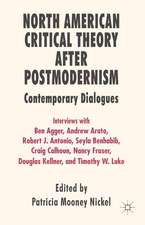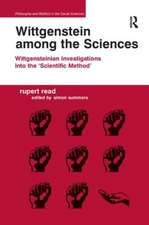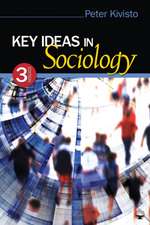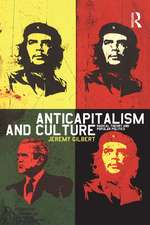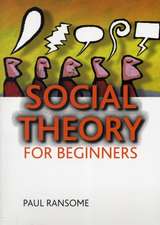Science and the Decolonization of Social Theory: Unthinking Modernity
Autor Gennaro Ascioneen Limba Engleză Hardback – 22 aug 2016
This book addresses the ideological figure of modernity, its presumed historical significance as an era, and its theoretical adequacy as a frame. It shows how science is evoked to prevent the sociological imagination from elaborating non-Eurocentric categories and terminologies that are more adequate for a global age. The idea of modernity should not only be contested, but radically unthought in its foundational assumptions. These assumptions inform concepts such as secularization, emancipation, the 'global' and accumulation of capital. This book frees these concepts from ethnocentrism and discloses a path toward a new, non-Eurocentric, global social theory.
Gennaro Ascione explores the transformative potential of decolonizing knowledge through a radical reconsideration of the historical and epistemological role that the intellectual reference to science plays in the construction of concepts. This ground-breaking work challenges social theoriststo think globally beyond modernity, bringing together social theory and science in an unprecedented way. Importantly, it makes accessible a new space of missing theorization for further developments and inquiries in the field.
Preț: 528.48 lei
Preț vechi: 621.74 lei
-15% Nou
Puncte Express: 793
Preț estimativ în valută:
101.12€ • 105.87$ • 83.67£
101.12€ • 105.87$ • 83.67£
Carte tipărită la comandă
Livrare economică 05-19 aprilie
Preluare comenzi: 021 569.72.76
Specificații
ISBN-13: 9781137516855
ISBN-10: 1137516852
Pagini: 220
Ilustrații: XI, 256 p.
Dimensiuni: 148 x 210 x 20 mm
Greutate: 0.45 kg
Ediția:1st ed. 2016
Editura: Palgrave Macmillan UK
Colecția Palgrave Macmillan
Locul publicării:London, United Kingdom
ISBN-10: 1137516852
Pagini: 220
Ilustrații: XI, 256 p.
Dimensiuni: 148 x 210 x 20 mm
Greutate: 0.45 kg
Ediția:1st ed. 2016
Editura: Palgrave Macmillan UK
Colecția Palgrave Macmillan
Locul publicării:London, United Kingdom
Cuprins
Introduction: The Epistemological Ritual of Modernity.- Chapter 1. The Scientific Revolution and the Dilemmas of Ethnocentrism.- Chapter 2. The Indissoluble Nexus between Modernity and Eurocentrism.- Chapter 3. Secularization as Ideology.- Chapter 4. Emancipation as Governamentality.- Chapter 5. The Predicament of the 'Global'.- Chapter 6. 'Degenerative' Capitalism.- Conclusion. The Future of Social Theory.- Appendix. Glosses on Method.
Notă biografică
Gennaro Ascione is a researcher in social theory, history of ideas and the epistemology of social sciences at the University of Naples l’Orientale, Italy. He is an associate researcher at the Centre for Social Theory at the University of Warwick, UK, the Centre for Arts and Science, Santa Monica at University of Barcelona, Spain, and the Institute for Research on Indian and International Studies at Delhi University, India. He is a member of the British International Studies Association Colonial, Postcolonial, Decolonial Working Group.
Textul de pe ultima copertă
This book addresses the ideological figure of modernity, its presumed historical significance as an era, and its theoretical adequacy as a frame. It shows how sociology and modernity evoke science to prevent the sociological imagination from elaborating non-Eurocentric categories and terminologies that are more adequate for a global era. The idea of modernity should not only be contested, but radically unthought in its foundational assumptions. These assumptions inform concepts such as secularization, emancipation, the 'global' and capital. This book frees these concepts from ethnocentrism and discloses a path toward a new, non-Eurocentric, global social theory.
Gennaro Ascione explores the transformative potential of decolonizing knowledge through a radical reconsideration of the historical and epistemological role that the intellectual reference to science plays in the construction of colonial concepts. This ground-breaking work challenges social theorists to think globally beyond modernity, bringing together social theory and science in an unprecedented way. Importantly, it makes accessible a new space of missing theorization for further developments and inquiries in the field.
